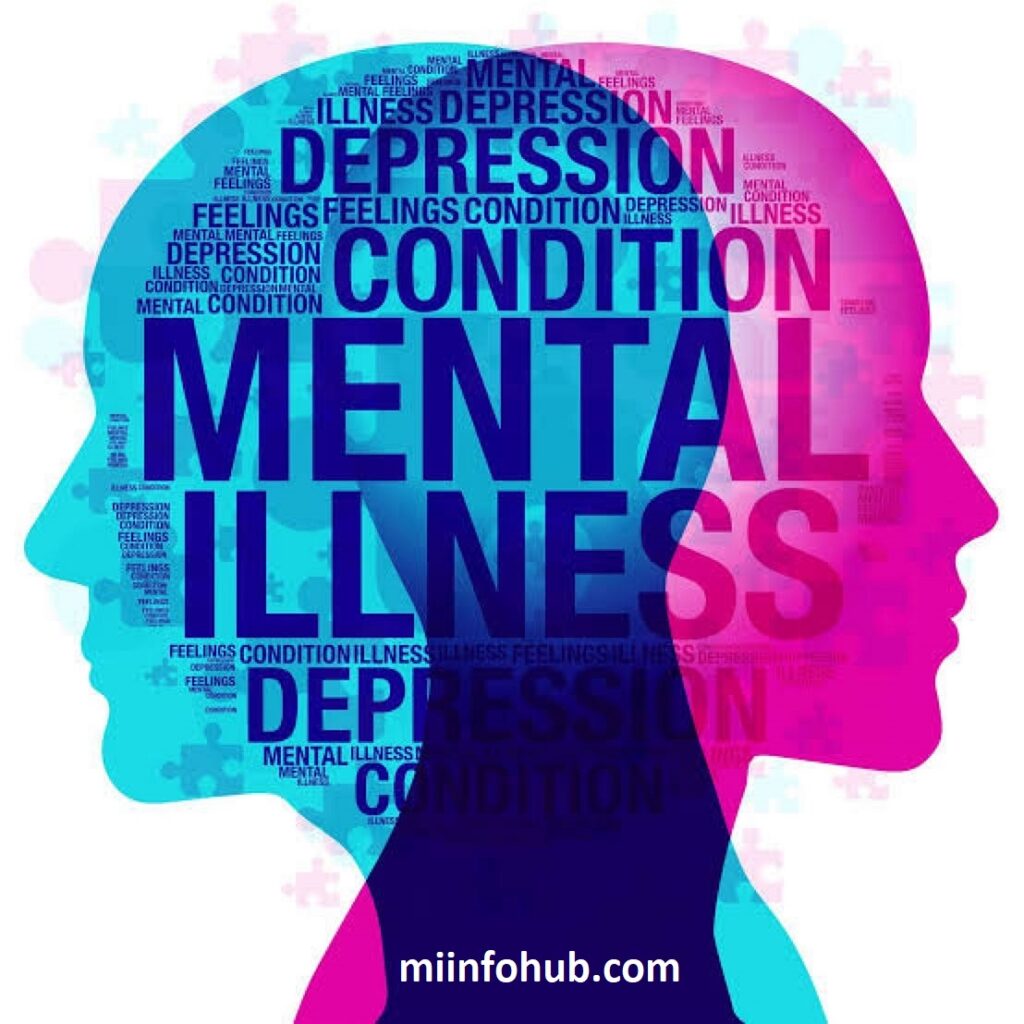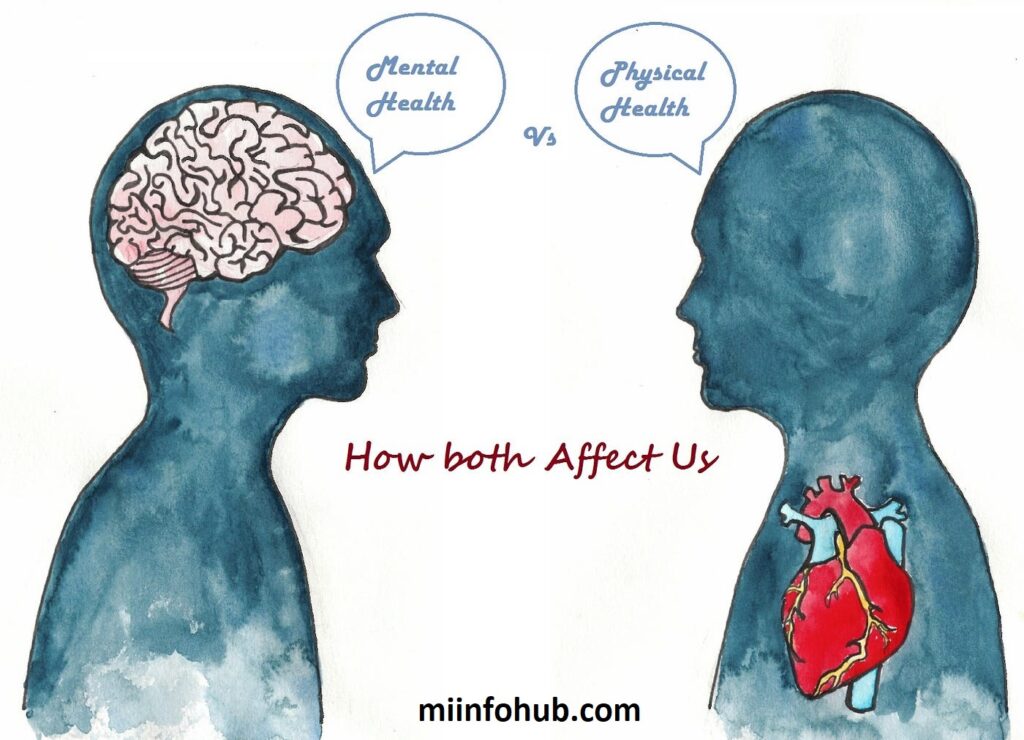
Emotional health affects physical well-being in profound ways. When emotions like stress, anxiety, and depression become overwhelming, they trigger physical reactions such as high blood pressure, weakened immunity, and chronic inflammation. Persistent stress increases cortisol levels, leading to fatigue, digestive issues, and heart problems. Poor emotional health also disrupts sleep, reduces energy, and impacts metabolism. On the flip side, positive emotions like happiness and gratitude promote endorphin release, boosting the immune system and improving heart health. Focusing on emotional well-being through mindfulness, exercise, and healthy relationships can significantly enhance physical health and overall quality of life.
The Mind-Body Connection: Why Emotions Matter
Emotional health affects physical well-being in significant ways. When stress, anxiety, or negative emotions take over, they trigger hormonal imbalances that can lead to high blood pressure, weakened immunity, and fatigue. Chronic stress increases cortisol levels, which can disrupt sleep, digestion, and heart health. Anxiety can also overstimulate the nervous system, causing muscle tension, headaches, and rapid heart rate.
On the other hand, positive emotions like happiness and gratitude help regulate hormones, boost the immune system, and promote heart health. Emotional health affects inflammation by reducing it, enhancing energy levels, and supporting better physical well-being. A well-balanced emotional state fosters overall health, leading to improved resilience in both body and mind. Prioritizing emotional well-being through mindfulness, exercise, and supportive relationships establishes a strong foundation for lasting mental and physical health. If you are intrusted in reading about social media effects on physical health then click here.
Emotional Health vs. Mental Health: Key Differences
Here’s a comparison column for “Emotional Health vs. Mental Health: Key Differences”:
| Aspect | Emotional Health | Mental Health |
|---|---|---|
| Definition | The ability to manage and express emotions in a healthy way. | The state of one’s psychological and cognitive well-being. |
| Focus | Emotions, feelings, and how we cope with stress and challenges. | Thoughts, reasoning, and mental processes. |
| Main Components | Emotional regulation, resilience, self-awareness, and empathy. | Cognitive functions, problem-solving, memory, and concentration. |
| Conditions Affected | Mood swings, emotional distress, relationship difficulties. | Anxiety, depression, schizophrenia, and other mental disorders. |
| Impact | Affects mood stability, personal relationships, and stress levels. | Impacts thinking, perception, decision-making, and behavior. |
| Treatment/Support | Therapy, mindfulness, emotional self-care, support networks. | Therapy, medications, psychiatric care, mental health resources. |
| Role in Overall Health | Plays a significant role in maintaining balanced emotional responses. | Critical for managing complex mental states and cognitive functions. |
| Interconnection | Poor emotional health can lead to mental health challenges. | Mental health issues often impact emotional well-being and coping abilities. |
Stress and Its Impact on Physical Well-Being
Emotional health affects physical well-being significantly. Chronic stress leads to elevated cortisol levels, which can increase blood pressure, weaken the immune system, and disrupt sleep. High cortisol levels strain the cardiovascular system, raising the risk of heart disease and stroke. They also suppress immune function, making the body more vulnerable to infections and inflammation. Additionally, stress can interfere with sleep, causing insomnia and fatigue. Managing stress through techniques like mindfulness, meditation, and exercise helps lower cortisol levels, improve sleep, enhance immunity, and safeguard overall physical health.

How Anxiety and Depression Affect the Immune System
Emotional health affects the immune system significantly. When emotional health declines, such as through chronic anxiety or depression, the immune system weakens. Studies show that prolonged emotional stress leads to reduced levels of essential immune cells like T-cells and natural killer cells, leaving the body more vulnerable to infections. Chronic stress also raises inflammation markers, further compromising immunity. Managing emotional health through therapy, mindfulness, and regular exercise can help strengthen the immune system, improving the body’s ability to fight off illnesses and maintain overall health.
The Role of Emotional Health in Heart Health
Poor emotional health is strongly linked to high blood pressure, increased heart rate, and a greater risk of heart disease. Chronic stress, anxiety, and depression can lead to elevated levels of stress hormones like cortisol, which can cause inflammation in the blood vessels and increase the risk of atherosclerosis (plaque buildup). This raises the likelihood of developing heart attacks, strokes, and other cardiovascular issues. However, managing emotions through self-care practices, therapy, mindfulness, and regular exercise can help reduce stress, lower blood pressure, and promote overall heart health, significantly lowering cardiovascular risks.
Sleep and Emotional Well-Being: A Two-Way Relationship
Lack of sleep can negatively affect emotional health, leading to increased stress, irritability, and mental exhaustion. Chronic sleep deprivation disrupts mood regulation and cognitive function, making it harder to manage emotions. On the flip side, poor emotional health can cause insomnia, creating a cycle of restless nights and heightened emotional distress. Establishing a consistent sleep routine, such as going to bed at the same time each night, limiting screen time, and practicing relaxation techniques, can help improve both emotional stability and physical health, leading to better overall well-being.
Chronic Stress and Its Link to Inflammation
Uncontrolled stress can trigger chronic inflammation, which is linked to a higher risk of conditions like arthritis, diabetes, and autoimmune diseases. Persistent stress causes the release of pro-inflammatory cytokines, which contribute to the development and progression of these health issues. However, reducing stress through activities such as exercise, meditation, and relaxation techniques can lower inflammation levels, helping to prevent or manage these chronic conditions and improve overall health.

How Positive Emotions Promote Physical Healing
Happiness, gratitude, and optimism stimulate the release of endorphins and other beneficial chemicals like serotonin and dopamine. These positive emotions help to enhance mood, reduce stress, and promote mental well-being. Moreover, they can accelerate the body’s healing process by boosting the immune system, increasing energy levels, and improving overall vitality. Research shows that regularly experiencing these emotions can lower the risk of illnesses by improving cardiovascular health, reducing inflammation, and supporting the body’s natural ability to fight off infections.
The Effects of Emotional Trauma on the Body
Unresolved emotional trauma can have a profound impact on the body, often manifesting as headaches, digestive issues, muscle tension, and chronic pain. These physical symptoms occur because the body holds onto the emotional stress, leading to persistent discomfort. Chronic emotional stress can interfere with the body’s natural healing processes and strain its ability to maintain balance. Therapy, support systems, and self-care practices such as mindfulness, relaxation techniques, and physical activity are essential for addressing both the emotional and physical aspects of trauma, helping to promote overall healing and well-being.
Foods That Boost Emotional Health
Certain foods can have a significant impact on emotional health by supporting brain function, stabilizing mood, and reducing stress. A balanced diet rich in key nutrients plays a crucial role in regulating hormones and neurotransmitters that influence mood. Here are some foods that can boost emotional health:
- Fatty Fish: Rich in omega-3 fatty acids, like salmon and mackerel, these help reduce inflammation and improve brain function, which can enhance mood and combat anxiety and depression.
- Leafy Greens: Vegetables like spinach, kale, and Swiss chard are high in folate, which supports the production of serotonin, a neurotransmitter that helps regulate mood.
- Nuts and Seeds: These are excellent sources of magnesium and vitamin E, which help reduce stress and promote relaxation. Almonds, sunflower seeds, and pumpkin seeds are great choices.
- Berries: Packed with antioxidants, particularly vitamin C, berries such as blueberries, strawberries, and raspberries help reduce inflammation and combat stress, leading to improved emotional well-being.
- Dark Chocolate: Rich in flavonoids, dark chocolate helps boost serotonin and endorphins, improving mood and reducing stress levels.
- Fermented Foods: Probiotic-rich foods like yogurt, kimchi, and sauerkraut support a healthy gut microbiome, which has been linked to better emotional health and reduced anxiety.
- Whole Grains: Oats, quinoa, and brown rice provide a steady release of energy and promote balanced blood sugar levels, preventing mood swings and irritability.
- Avocados: Full of healthy fats, avocados support brain health and help reduce the production of stress hormones, promoting relaxation.
- Turmeric: The active compound in turmeric, curcumin, has anti-inflammatory properties and has been shown to boost mood and improve brain function.
- Bananas: A great source of vitamin B6, bananas help the body produce serotonin, supporting a stable mood and reducing symptoms of depression.
Nutrition, Gut Health, and Emotional Stability
The gut-brain connection is strong, meaning that poor nutrition can directly affect emotional well-being. A diet lacking in essential nutrients can lead to imbalances in brain chemicals, contributing to mood swings, anxiety, and depression. Eating a balanced diet rich in probiotics, vitamins, and minerals supports both mental and physical health by promoting healthy gut bacteria and ensuring proper brain function. Nutrients like omega-3 fatty acids, B vitamins, and magnesium play key roles in regulating mood, while probiotics help maintain a balanced gut microbiome, which is crucial for emotional stability and overall health.

Practical Tips to Improve Both Emotional and Physical Health
Prioritizing self-care, engaging in physical activity, maintaining social connections, and practicing mindfulness are essential habits for enhancing emotional health. Regular exercise helps reduce stress, improves mood, and boosts energy levels, while mindfulness practices promote emotional balance and reduce anxiety. Social connections provide support and a sense of belonging, which are vital for emotional well-being. By incorporating these habits into daily life, individuals can improve both their emotional and physical health, leading to a more fulfilled and happier life.
Call-To-Action (CTA)
Take control of your emotional and physical well-being today! Start by incorporating mindfulness, exercise, and a balanced diet into your routine. Remember, small changes can make a big difference in how you feel both mentally and physically. Don’t wait – prioritize your emotional health now for a healthier, happier life. Share your journey and inspire others to do the same!

Conclusion
In conclusion, emotional health affects plays a crucial role in maintaining overall physical well-being. The connection between the two is undeniable, with emotional states like stress, anxiety, and depression having a significant impact on physical health, including heart disease, immune function, and sleep quality. On the other hand, nurturing emotional well-being through self-care, exercise, mindfulness, and strong social connections can greatly improve physical health, reduce the risk of chronic conditions, and enhance the overall quality of life. By prioritizing emotional health, we not only promote mental stability but also support a healthier, happier, and more fulfilling life.
